KIA Niro: Body Control Module (BCM) / Repair Procedures
Kia Niro - First generation - (DE) (2017-2022) - Service and Repair Manual / Body Electrical System / Body Control Module (BCM) / Body Control Module (BCM) / Repair Procedures
Removal
- Disconnect the negative (-) battery terminal.
- Remove the glove box housing. (Refer to Body - "Glove Box Housing")
- Disconnect the blower motor connector (A).
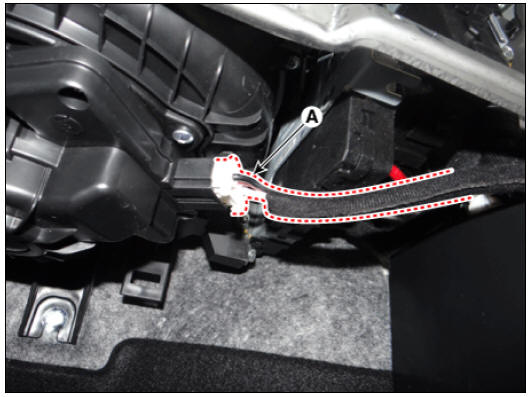
- Disconnect the body control module connectors (A).
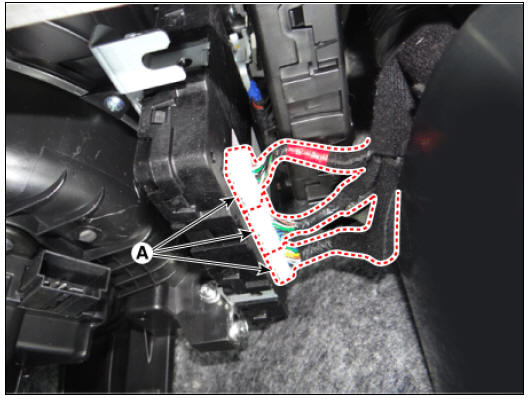
- Remove the body control module (A) after loosening the mounting bolts and nuts.
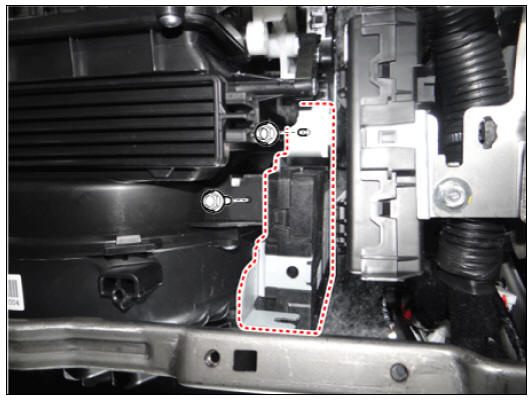
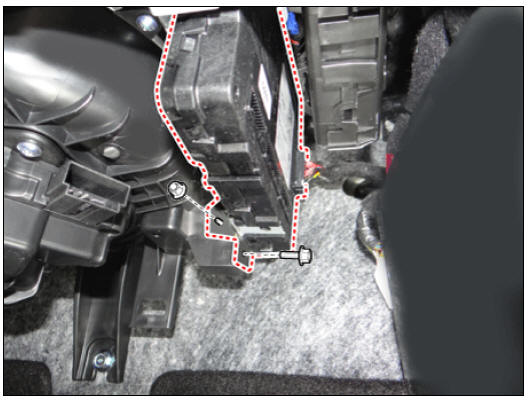
- Remove the body control module (B) after disconnecting the connector (A).
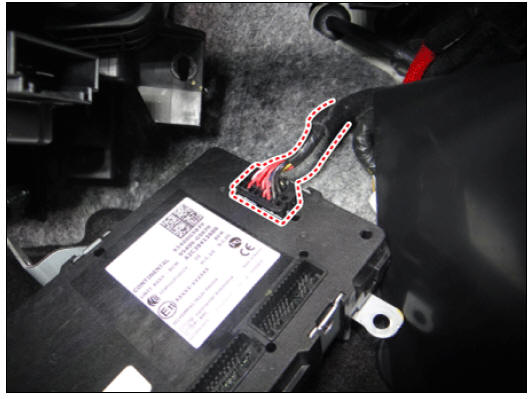
Installation
- Install in the reverse order of removal.
BCM Diagnosis With KDS
- In the body electrical system, failure can be quickly diagnosed by using the vehicle diagnostic system (KDS).
The diagnostic system (KDS) provides the following information.
(1) Self diagnosis : Checking failure and code number (DTC)
(2) Current data : Checking the system input/output data state
(3) Actuation test : Checking the system operation condition
(4) Additional function : Controlling other features including system option setting and zero point adjustment
- Select the "Car model" and the 'Body Control Module (BCM)' to be checked in order to check the vehicle with the tester.
- Select the 'Current Data' menu to search the current state of the input/output data.
- If you want to change user option, select "user option".
READ NEXT:
 Button Engine Start System / Description And Operation
Button Engine Start System / Description And Operation
Button Engine Start System / Components And Components Location
Body control module (BCM)
Smart key unit (SMK)
Interior antenna 1
Interior antenna 2
FOB key
Start Stop Button (SSB)
Door handle & door antenna
Bumper ant
 Start/Stop Button | ESCL (Electronic Steering Column Lock)
Start/Stop Button | ESCL (Electronic Steering Column Lock)
Start/Stop Button Repair procedures
Removal
Disconnect the negative (-) battery terminal.
Remove the crash pad garnish assembly (RH). (Refer to Body - "Crash Pad Garnish (RH)")
Remove the start/stop button.
(1) Push
SEE MORE:
 Rear Door Trim
Rear Door Trim
Rear Door Trim Components and components location
Rear door trim
Rear Door Trim Repair procedures
Replacement
Remove the rear door delta inner cover (A) using a remover.
Remove the rear door inside cap (A) and then loosen th
 If an accident
occurs
If an accident
occurs
WARNING
For your safety, do not touch the high
voltage cables, connectors and package
modules. High voltage components
are orange in color.
Exposed cables or wires may be visible
inside or outside of the vehicle.
Never touch the wires
Categories
- Home
- KIA Niro EV, Hybrid - Second generation - (SG2) (2021-2024) - Owner's manual
- Kia Niro - First generation - (DE) (2017-2022) - Service and Repair Manual
- Contact Us
